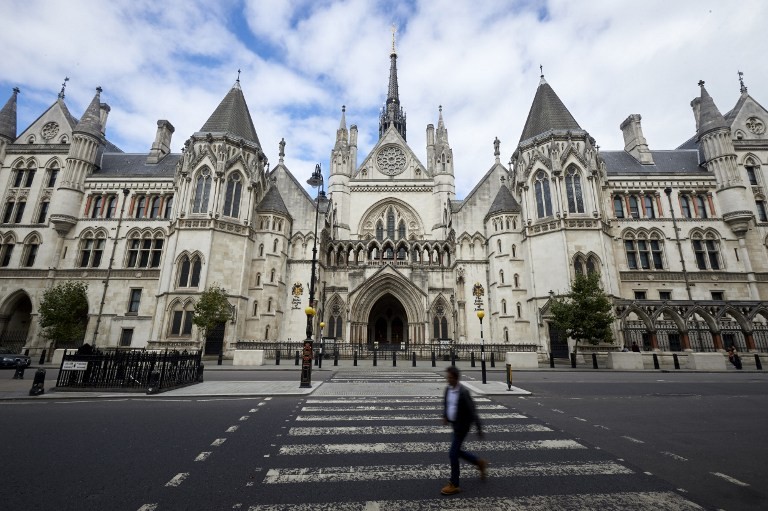Property and cryptocurrency—the legacy of "AA v Persons Unknown"
---
The author unpacks the consequences of the case of AA V Persons Unknown on the legal controversy over the ownership of cryptocurrencies
In the recent case of AA v Persons Unknown [1], the English High Court has pronounced judicially for the first time after the publication of the UK Jurisdiction Taskforce’s Legal Statement [2] on cryptocurrency that in English law, cryptocurrency can constitute property, at least for the purposes of the imposition of a proprietary injunction. To be clear, AA v Persons Unknown [3] is not the first case in the English courts to accept cryptocurrency as property, at least in the case of proprietary injunctions—cases such as Robertson v Persons Unknown and Elena Vorotyntseva v Money-4 Limited t/a Nebeus.Com, Sergey Romanovskiy, Konstantin Zaripov [4] have also confirmed this position. However, what is special about AA v Persons Unknown is that it is the first judgment to consider the UK Jurisdiction Taskforce’s Legal Statement on cryptocurrency and accept its conclusions on the proprietary nature of cryptocurrency.
Orthodoxy and Modernity
As noted in both the Taskforce’s Legal Statement and in AA v Persons Unknown itself, the “orthodox” approach adopted in the seminal case of Colonial Bank v Whinney [5] towards the strict bifurcation of personal property into “things in possession” and “things in action” [6] means that cryptocurrency cannot be considered personal property since they cannot be things in possession as they are intangible, virtual, and cannot be possessed, and they cannot be things in action because they do not “embody any right capable of being enforced by action”.
However, it was also noted that this bifurcation promulgated in Colonial Bank v Winney was considered obiter and is no barrier to recognising the proprietary nature of cryptocurrency. Indeed, it was noted in AA v Persons Unknown that the Singapore International Commercial Court [7] has already held that cryptocurrency meets the four criteria set out by Lord Wilberforce in National Provincial Bank v Ainsworth [8]—they are definable, identifiable by third parties, capable in their nature of assumption by third parties, and have some degree of permanence, and should therefore be treated as property.
 The Royal Courts of Justice building in London. Source: AFP
The Royal Courts of Justice building in London. Source: AFP
Impact of AA v Persons Unknown
Barring a re-examination of the same issues by a superior court, the dicta in AA v Persons Unknown represents the position in English law. While strictly speaking cryptocurrency is not an issue within the realm of legaltech, it represents an interesting intersection between law and technology, especially in the realm of property law, which AA v Persons Unknown deals with. The finding that cryptocurrency can be considered property in English law is one that is watershed for it means that the courts have taken the first step towards recognising the possibility of proprietary remedies relating to crypto assets against defendants, and that cryptocurrency is susceptible to proprietary tracing. The next step for the English courts is to broach the more difficult question of whether cryptocurrency is recognised as property not just for the purposes of a proprietary injunction, but also for the purposes of other proprietary remedies after proprietary tracing has been carried out.
At the same time, such a finding also raises several important questions. As the Legal Statement released by the UK Jurisdiction Taskforce has canvassed, if cryptocurrencies are neither things in action nor things in possession, what exactly are they? The Legal Statement suggests that they belong to a “third” kind of property “as the court was prepared to do with the EU carbon emission allowances in Armstrong v Winnington [9]”. However, in Armstrong v Winnington, while Morris J held that the EU carbon emission allowances were not things in action but instead an “other intangible” property, His Lordship did not hold what type of “other intangible property” it was [10]. As such, Armstrong v Winnington seems like a weak basis on which the UK Jurisdiction Taskforce has based their Legal Statement on, and this was not further explored by AA v Persons Unknown. Perhaps, we might have to await another case to fully unravel the true proprietary nature of cryptocurrencies.
- [2020] 4 WLR 35
- UK Jurisdiction Taskforce, Legal Statement on Cryptoassets and Smart Contracts
- Unreported
- [2018] EWHC 2596 (Ch)
- [1885] 30 ChD 261
- [55] of AA v Persons Unknown
- B2C2 Ltd v Quoine Pte Ltd [2019] SGHC(l) 3
- [1965] UKHL 1
- [2013] Ch 156
- [59]-[61] of Armstrong v Winnington
Related links
Main menu



